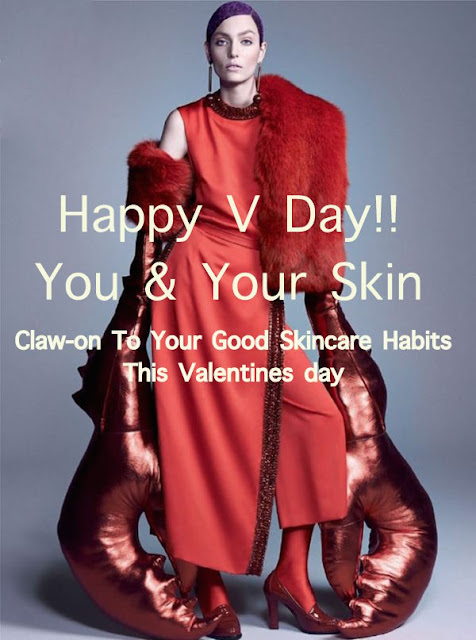Flawless
skin is the key to looking beautiful and youthful for always and forever. If
you want to join the forever-beautiful kin show your skin some dedicated love and claw-on
to good skincare habits as early as in your 20’s — Eat right, exercise
regularly, and use sunscreen vivaciously. As you approach your 30’s commit to
your skincare more rigorously — add regular exfoliation, antioxidants, energy-based
devices and so on to keep your skin youthful, perky and taught. And as the tide
of time takes you forward, keep building on these healthy habits you’ve already
adopted. A consistent and quality skin care regimen is the single best step towards
maintaining youthful, healthy and beautiful skin.
Wear Sunscreen Proudly — You have probably heard
it a gazillion times but you can never underestimate this golden skincare advice.
Sun damage is not a pretty sight — think wrinkles, loss of elasticity,
pigmentation and dryness; and in some cases, it can be downright deadly in the
form of skin cancer. Get a broad Spectrum UVA/UVB product with an SPF of 30 or
above. Use it regularly — Never leave home without it!
Retinoids A Night Keeps Wrinkles At Bay — To prevent wrinkles and other signs of
premature aging, this vitamin A derivative is your clinically proven best
friend. Word of advice before initiation — it's not uncommon to have an initial
irritation reaction to retinoids, as they change the skin's growth rate,
increase skin cell turnover, and cause skin exfoliation. If that happens reduce
how much you apply or change other products in your beauty routine e.g. vitamin
C or alpha hydroxy acids and in few days the skin will begin to normalize.
Splurge On Vegetables And Fruits — You are what you eat, so why not nibble your way to
beautiful skin? Pack in the antioxidants to fight free radicals and prevent inflammation. Science confirms: it will make a
difference. Clinical studies have shown that catechins from green tea,
anthocyanins from dark berries and red cabbage, bioflavonoids from citrus,
carotenoids such as lycopene and lutein from tomatoes, reservratrol from red
wine and genistein from soy offer potent secondary antioxidant protection in
the skin. By including these types of foods more often in the diet, the
antioxidant defenses in the skin can be optimized.
Cut
down on sugars and carbs they make your skin age faster by process of
glycation.
Acknowledge The Importance
Of Fatty Acids
— Within the skin, fatty acids make up an integral component of cell walls that
help maintain cell structure and function. Clinical studies show that the
healthy balance of fatty acids in the skin dramatically decreases with aging
and increased oxidative stress, such as that caused by chronic sun exposure.
Therefore obtaining the right amount (and type) of fats through diet or
supplementation is critical to maintain healthy skin as we age. Aim for a
balanced intake of omega-6 to omega-3 fatty acids (typically at a ratio of
about 4:1). Excessive amounts of the omega-6 fat (arachidonic acid) found in
egg yolks, poultry skin, and organ meats from animals fed corn-based diets have
a pro-inflammatory effect in the body including the skin. Conversely, fish oil
rich in the omega-3 oils eicosapentaenoic and docosahexaenoic acids (EPA and
DHA) inhibit the production of inflammatory metabolites. Due to their ability
to modulate inflammation, long-chain omega-3 fatty acids are effective in the
management of inflammatory skin conditions, such as acne, psoriasis, eczema,
and rosacea.
Younger Skin Through
Exercise —
Exercise not only appears to keep skin younger, it may also even reverse skin
aging in people who start exercising late in life — that’s what a surprising
new research at McMaster University in Ontario has deduced. Exactly how
exercise changes skin composition is not completely clear, but in a portion of
the study comparing skin samples of participants, the researchers checked for
alterations in the levels of certain substances created by working muscles
called myokines; these substances are known to enter the bloodstream and
jump-start changes in cells far from the muscles themselves. The scientists
found greatly augmented levels of a myokine called IL-15 in the skin samples of
volunteers after exercise. The skin samples of the group with younger looking
skin, showed almost 50 percent increase in IL-15 after they had been exercising
than at the start of the study. The researchers suspect that additional
myokines and substances are also involved in the skin changes related to
exercise. You heard me — get up and get moving in the name of youth and beauty.
Have
A Sublime Valentines Day!!





